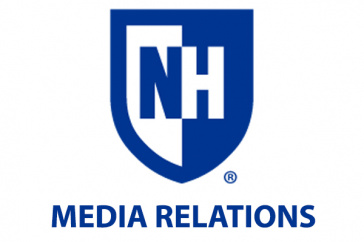The University of New Hampshire is a flagship research university that inspires innovation and transforms lives in our state, nation and world. More than 16,000 students from all 50 states and 71 countries engage with an award-winning faculty in top ranked programs in business, engineering, law, health and human services, liberal arts and the sciences across more than 200 programs of study. UNH’s research portfolio includes partnerships with NASA, NOAA, NSF and NIH, receiving more than $100 million in competitive external funding every year to further explore and define the frontiers of land, sea and space.
UNH Researchers Show Impact of Outdoor Behavioral Healthcare More Lasting

DURHAM, N.H. – Mental health and substance abuse issues in adolescents have become major societal problems, forcing parents and health providers to look for innovative treatment options that may better suit some teens. However, some proven therapy programs, like Outdoor Behavioral Healthcare (OBH), can be challenging to access because many are not covered by insurance companies – creating an enormous cost burden for parents. Now, a landmark study by researchers at the University of New Hampshire has found that parents of youth who went through an outdoor behavioral program report that their children showed almost three times the improvement after one year than youth who remained in their communities for more traditional treatment.
“This is the first significant study to offer a well-matched comparison between outdoor therapy and more traditional treatments, like behavioral therapy,” said Mike Gass, a professor in the Outdoor Education Program and a co-author of the study. “It shows that adolescents who took part in the outdoor behavioral healthcare programs had a significant decrease in their symptoms - including depression, anxiety and substance abuse – for a longer period of time, no matter their gender, race, or age.”
OBH, sometimes referred to as wilderness therapy, is a growing, innovative and therapeutic intervention for adolescents struggling with emotional, behavioral, relational, and substance abuse disorders. It is the prescriptive use of wilderness experiences - such as hiking, backcountry travel, climbing - by licensed mental health professionals to meet the therapeutic treatment needs of clients. It includes group-living and group therapy as well as one-on-one counseling sessions.
Adolescents in both study groups ranged in age from 12 to 17 years old. The OBH program used a continuous flow wilderness trek model, where the treatment team rotated in and out of ongoing groups on wilderness expedition. Clients received mental health, substance abuse, and general health care services while they were immersed in a wilderness-living experience. To address dysfunction in family dynamics and prepare participants to return home after treatment, family therapy was also provided. This group was compared to adolescents in the “treatment as usual” (TAU) group who remained at home in their community and received outpatient counseling, psychiatric care, and medication management.
At the end of both treatment groups, parents and participants provided feedback through a standard clinical questionnaire used in treatment to measure symptoms such as anxiety, depression, eating disorders, and other social issues. Parents of the OBH clients said their teens functioned significantly better after 14 months than the parents of the TAU group.
“Research shows that suicide is the second leading cause of death in youth ages 15 to 25 and 90 percent of those youth have an underlying mental health disorder,” said Anita Tucker, associate professor of social work and co-author of the study. “We hope that this new study offers helpful information to educate insurance companies that OBH is an evidence-based intervention option and ultimately provides coverage to parents who are struggling financially to help their child.”
This work was supported in part by the Associated Charities of Baltimore and the Outdoor Behavioral Healthcare Council.
Video to download:
Link: https://www.youtube.com/watch?v=3IYGBQJ2eUY
Caption: Video introduction to Outdoor Behavioral Healthcare and what to expect for potential clients, families, educational consultants and therapists.
Credit: Outdoor Behavior Healthcare Center at the University of New Hampshire
Latest News
-
December 12, 2024
-
December 11, 2024
-
November 22, 2024
-
November 7, 2024
-
October 30, 2024
















































